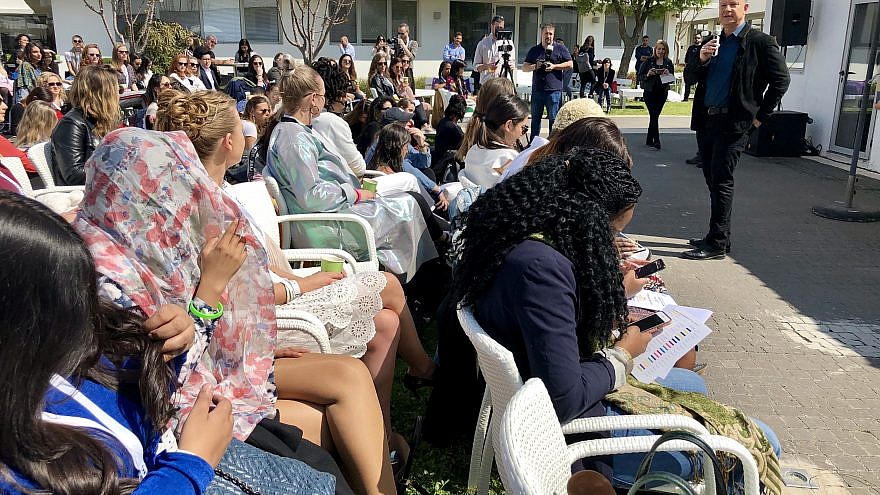With a record number of women in U.S. Congress, starting companies, and sitting on the boards of directors of major businesses, academic and cultural institutions, editor of ForbesWomen Maggie McGrath defined the modern era as one where women are overcoming adversity to champion their professional communities in the United States and around the world.
Still, she told JNS, women face many challenges in the workplace and as global leaders. Part of the solution, she said, lies in bringing female leaders together to Israel and learning by example.
Israel, McGrath posed, offers a start-up energy that is “almost unlike anywhere else in the world,” both as a global entrepreneurial epicenter and a country that fosters leaders, making it a perfect location for such gatherings. She credited Israel’s start-up scene to the mandatory army draft, which creates the positive perception of each individual’s ability to lead—a kind of confidence that is helpful for women and men alike in business.
Similarly, said Forbes magazine editor Randall Lane, the fact that “women serve side by side in the [Israel Defense Forces] and assume leadership roles even before college, shows that clearly there’s something happening here the rest of the world can learn from in terms of the acceleration of women.”
For example, he noted, in the elite 8200 unit of the IDF, which is known as an incubator for future entrepreneurs and problem-solvers, 55 percent of those who serve, including in its leadership, are women. This “sets a tone that has permeated into the venture capital and start-up scene,” Lane told JNS.
Speaking at the Jerusalem-based venture-capital firm Jerusalem Venture Partners (JVP) last week, Lane noted that he had not yet been to a business meeting at JVP in which women made up fewer than 50 percent of the room. “These guys walk the walk,” he said.
“We’ve noticed how many amazing women leaders there are in start-ups and venture-capital here, and clearly, there are lessons to be learned from Israel that could be an example for the region and the entire world,” said Lane.
While many view the region’s challenges as negative, Lane posed that challenge “creates eyes for change,” increasing one’s sense of purpose, and thus his or her desire to solve problems. “Purpose is important for entrepreneurs who understand that profit without meaning is pointless,” he said. “Challenge pushes us to think differently and solve problems with more purpose.”
‘Harness the energy of female entrepreneurs’
JVP founder and high-tech and social entrepreneur Erel Margalit similarly maintained that Jerusalem, in particular, is known for its “strife and differing passions.” However, “while the 19th century was all about profit and the 20th century was about profit and risk, the 21st century is about profit, risk and impact, with change coming from people who want to succeed and find meaning in their lives.”
Those who have “dared to see the world in one way, imagined how it can be different and had the chutzpah to think they could change it” have transformed Jerusalem through innovation, Margalit told JNS. “Economic development, agriculture and water innovation were the first keys to the breakthrough of regional cooperative efforts that include Morocco, Dubai, Jordan and Egypt,” he said. “Innovators led Israel to economic alliances long before politicians could.”
“While we know Israel is surrounded by enemies, including ISIS, Iran, Hamas and Hezbollah, we also know that in addition to counting our enemies in region, it’s about time to count our allies. If innovation can change a city like Jerusalem,” posed Margalit, “it can change an entire country and perhaps our region—maybe even the entire world.”
Margalit expressed pride in hosting the “Under 30 Global Women’s Summit,” inviting participants to relate to Jerusalem “for their own creative processes, derive inspiration from it, and see it as a place with which to cooperate and create.”
That is precisely the goal of the summit, said Lane: “to harness the energy of female entrepreneurs in Israel, learning lessons from Israel’s start-up transformation, all while working to leave Israel better off than when we arrived.”
So far, according to Lane, that is exactly what occurred.
“You cannot be here and look around at what is going on without feeling optimistic,” he concluded.


























